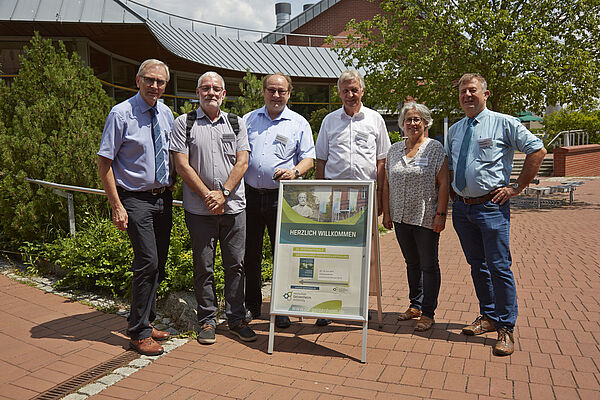Over 160 participants from 20 countries showed considerable interest in the International Geisenheim Conference on Grapevine Propagation which was held at Hochschule Geisenheim University from 28 – 30 June 2018.
The introduction of the phylloxera aphid into Europe in the year 1863 caused serious damage in many regions and destroyed entire wine-growing areas. Only when it was recognized that the pest originated in North America and that the native wild varieties there were resistant to infestation, was a long-term, inexpensive and environmentally friendly solution to the problem found: the grafted vine. This involved grafting a European scion onto an American rootstock that was resistant to or tolerant of root attack by phylloxera. The American rootstock on a grafted vine guarantees resistance to phylloxera and the European scion produces high quality grapes. This technique made “normal” viticulture possible again, despite phylloxera, without the need for further control measures. But first the different grafting methods, particularly the bench grafting technique commonly used today, had to be developed and put into practice. The Geisenheim Grape Breeding Institute played a crucial role here. This was where many procedures were developed including the carton method of vine-grafting and the Chinosol fungicide treatment for reducing Botrytis cinerea infections. The Geisenheim Conference on Grapevine Propagation plays an important role in the development and practical implementation of new grapevine propagation techniques. Continuing this tradition, this year the event took place at international level for the 22nd time.
The first key area this year was devoted to providing impulses for the further development of propagation techniques and introducing the industry to innovations in grapevine propagation and viticulture.
The agenda also included the issue of how to provide propagators and winegrowers with healthy, high-performance planting material in an age of globalisation and climate change. International speakers introduced their work on this topic. The Department of Grapevine Breeding at Geisenheim is also heavily involved in this area of research, developing new clones, working on variety maintenance, developing fungus-tolerant grape varieties and breeding rootstocks.
The third key theme was the cultivation of fungus-resistant grape varieties in Europe, with guest speakers from France, Italy and Germany. Their talks were complemented by a presentation of wines of different fungus-tolerant grape varieties from various European breeders.
To round off the event there was a field trip to the wine-growing region of Rheinhessen which included visits to the grapevine propagation nursery of Walter Bernd at Gau Algesheim and the Wasem wine estate at Ingelheim. This was an opportunity, particularly for international attendees, to get to know one of Germany’s largest wine-growing regions.



